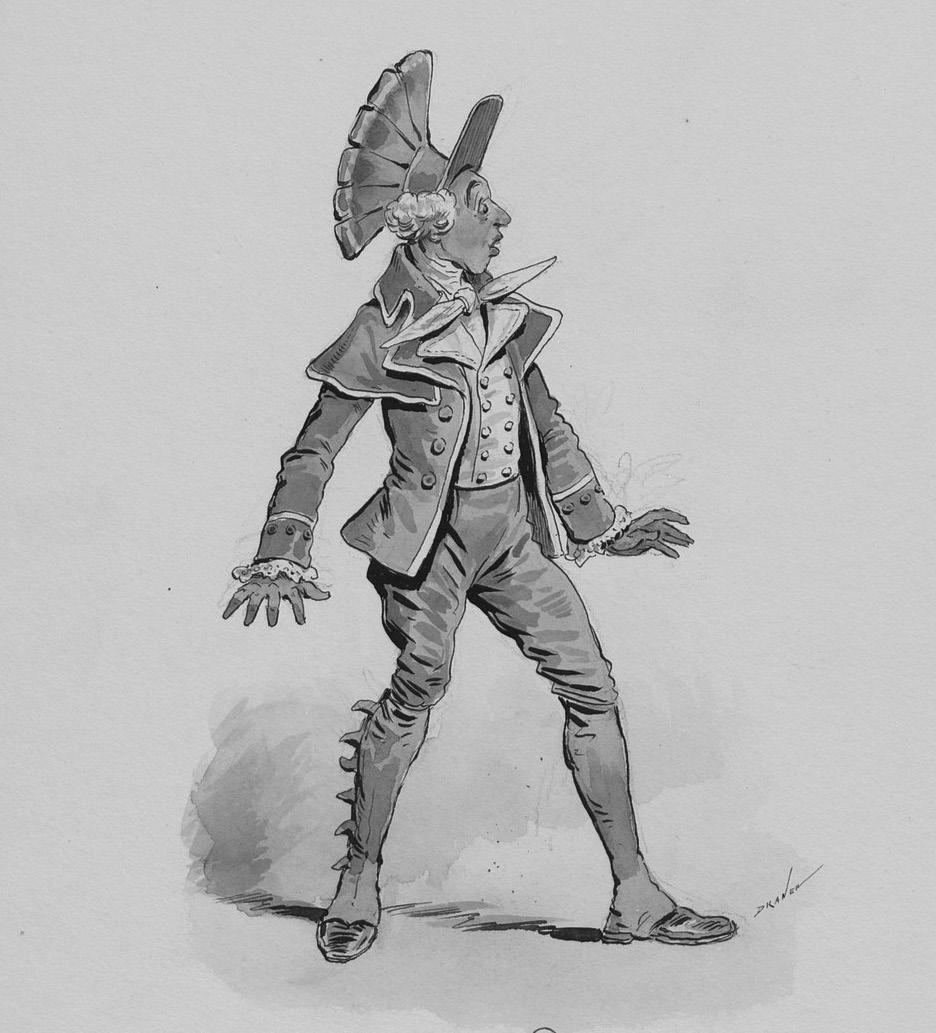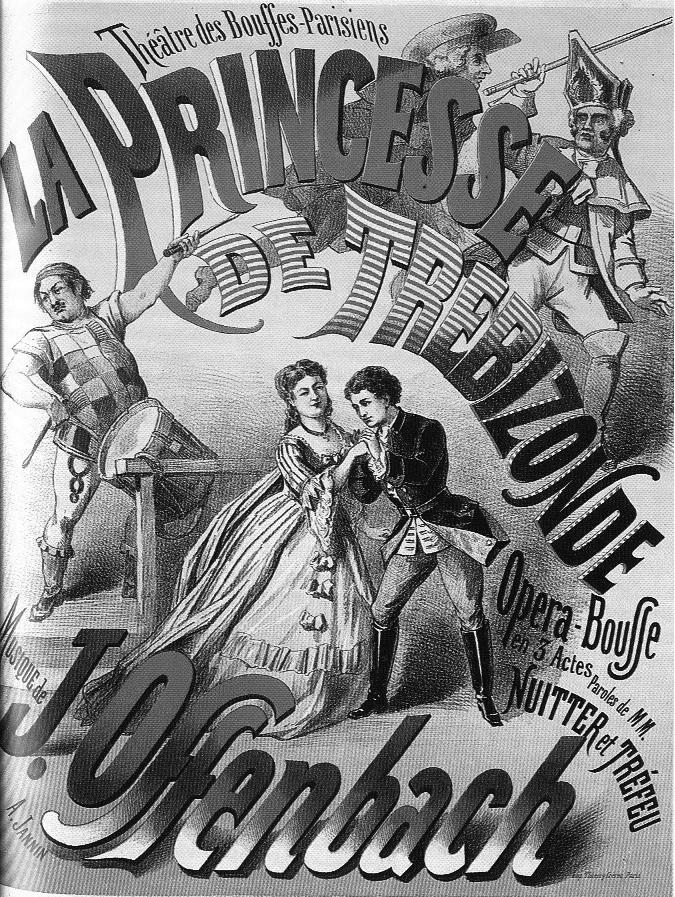
2 minute read
Programme note
postponed until the end of December. Admittedly, a great many changes were made. An entire act was added to the beginning with no fewer than five new numbers, including a grand finale. The numbers temporarily borrowed by Offenbach from La Baguette were removed, while others were extensively revised. This was the case with the famous aria ‘Du mal de dent’, which became one of the opéra bouffe’s most popular hits after it was revised. The new structure entailed the removal or replacement of some 15 numbers. One of the most beautiful of the ensemble pieces that had to be sacrificed was fortunately not lost since the composer later inserted it in the second act of Fantasio. And there is no doubt that the music was worth saving! Just as Les Brigands was a great success at the Théâtre des Variétés where La Périchole had just received a lukewarm reception (alas!), La Princesse de Trébizonde was also a huge success on 11 December 1869 at the Bouffes-Parisiens – where it was La Diva, one of the bitterest failures by the Offenbach-Meilhac-Halévy trio, that had to be lived down.
With three acts, the opera was already long. However, Offenbach would go to any lengths to showcase the talents of his beloved Valtesse de la Bigne, for example by writing a delightful short act as a curtain-raiser for her: ‘La Romance de la rose’. A tireless traveller, Offenbach only rested for a few days in Nice before departing for Vienna to supervise the German premiere of Die Prinzessin von Trapezunt. During this time, the work enjoyed a good run in Paris, where it was performed until the end of May 1870.
After such a brilliant start, the opera’s career was halted by the Franco-Prussian war. As soon as the theatres reopened, the work was put on again at the Bouffes-Parisiens, where the first performance was nearly a flop, reported Le Figaro: ‘That poor Princesse de Trébizonde had a narrow escape. Its return to the Bouffes was very nearly booed off. However, common sense prevailed against that ridiculous conspiracy. The conspirators did not exactly have anything against the Princesse, but against its proud father, under the pretext that Jacques Offenbach was Prussian! While congratulating those gentlemen for their courageous patriotism, the truth of the matter is that Offenbach has been French in the eyes of the law and of History for ... 15 years. We have acknowledged him as one of our own for so long that it would be childish – to say the least – to disown him today.’ Despite this, the work was still performed throughout Europe, in America and even Australia, with the same degree of success.
After Offenbach’s death, the work did not vanish completely from the French stage and was not consigned to total oblivion like other less fortunate treasures. It was revived occasionally in the provinces before being picked up by the Office de Radiotélévision Française (French Radio and Television Service). However, La Princesse de Trébizonde certainly deserves to rank highly as one of Offenbach’s most famous works. It is a perfect masterpiece of the genre, one of those nuggets you are always hoping to discover, which is rarely featured in our concerts, but which holds an important place in our memory. Just try it.
Programme note by Jean-Christophe Keck English translation by Sue Rose










